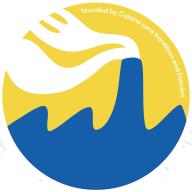General information
Meating Hub is currently seeking a Communications Intern to join their team in Thessaloniki, Epanomi.
Please note that this position is specifically designed for students or recent graduates, and priority will be given to individuals holding a grant such as Erasmus+ or those undertaking the internship as part of their studies.
As a Communications Intern at Meating Hub, they are looking for a dynamic and efficient individual with a diverse skill set in the field of communications. The ideal candidate should have a strong interest in culture, sustainability, campaigning, policy communication, and event organization.
Qualifications they are seeking:
- Students of communications, public relations, journalism, or related fields.
- Proficiency in using web-based resources, including social media platforms, web editors, and content management systems (CMS). Knowledge of HTML is a plus.
- Experience using Photoshop, Illustrator, and InDesign.
- Strong communication and interpersonal skills.
- Experience in campaigning is desirable.
- Excellent written and spoken English, and knowledge of other EU languages is advantageous.
- Attention to detail.
- Well-organized, practical-minded, and capable of prioritizing tasks in a busy and varied workload.
- Independent, proactive, and self-starting personality.
- Interest in European networks and membership-based organizations.
Responsibilities of the Communications Intern include:
- Active participation in team meetings and engagement in Meating Hub activities.
- Supporting Meating Hub campaigns.
- Assisting in the implementation of communication actions, such as designing and drafting mailings, creating monthly News Digests and Newsletters.
- Updating the organization's website and managing social media activities.
- Monitoring social media channels and contributing to the implementation of the social media strategy.
- In-house design of publications.
- Assisting in event management, including planning, logistics, and communication.
- Attending key events.
- Creating content from events, including filming, editing, and photography.
By joining Meating Hub as an intern, you can expect to gain the following benefits:
- Practical knowledge in running a cultural organization.
- Solid understanding of external communications practices and hands-on experience with communication tools and software.
- First-hand experience in event management.
- Insight into audience development through startup projects.
- In-depth understanding of NGO communications and lobbying in Greece and at the European level.
- Emphasis on maintaining a healthy work-life balance.
- Opportunity to work in a team-driven project environment.
Please note that this internship does not offer financial compensation, and no prior years of experience are required. You can find more information about Meating Hub and their work on their Facebook page at: [https://www.facebook.com/MeatingHub](https://www.facebook.com/MeatingHub).


